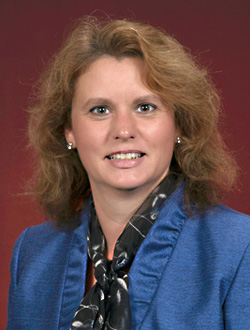Sensible senior solutions

Jill Chaban, Geriatric Care Manager
By Jill Chaban, Special to PRIME
Caring for an elder can be time consuming and exhausting for both you and your bank account. Family and friends can help, but there may come a point when your loved one needs professional care delivered by a homecare agency.
More than 7.6 million Americans receive homecare according to the U.S. Census Bureau. Countless others need care and are not receiving it!
There are two main categories of homecare. Skilled care provides for medical needs.
Custodial care may include shopping, meal preparation and personal care such as bathing dressing and feeding. Some agencies only provide one type of care while others do both.
Homecare organizations include home health agencies, hospices, homemaker, and homecare aide (HCA) agencies, staffing and private-duty agencies.
There are many choices for homecare in the Pioneer Valley. Many offer similar services but are quite different in how they operate. Some are affiliated with a hospital and many are private companies.
The first step to finding the right kind of homecare agency is determining what level of care is needed and will Medicare cover it? Typically, Medicare only covers the cost of a limited amount of home health services for a limited period of time following a qualifying hospital stay.
Families typically pay for homecare services out of pocket, unless the older person meets Medicare's coverage criteria.
To qualify for Medicare coverage, a person must be homebound, be under the care of a physician, and require intermittent skilled nursing care.
Families can also use their private long-term care insurance. In addition, the Veterans Aid and Attendance pension may also help pay for homecare services. People may also be eligible under Medicaid.
The advantage of using a homecare agency is that it takes over the responsibility for screening and supplying aides and paying them. Agencies also run criminal background checks and check driving records.
They also will provide a substitute if your main aide is unavailable. It is recommended that a family interview at least six candidates, comparing them and checking references.
Families should interview applicants in the home so the aides know what kind of environment they will be working in. And don't forget to include the input of the person receiving the care.
Here are 10 questions to ask a homecare agency:
1. Is the agency Medicare certified?
2. Is the agency licensed by the state?
3. Will it provide references?
4. Does the agency offer the specific services you need, such as physical, occupational or speech therapy?
5. Does the agency have specific disease management programs such as orthopedic rehab, diabetes management, and wound care?
6. Can it meet any language needs?
7. How does this provider select and train its employees?
8. Is the family included in developing a plan of care?
9. Are there supervisors overseeing the employees that go into the home?
10. Has the agency been in the area a long time? Finally, do you get a good feeling from the people that run and work for the agency and are they highly recommended?
Jill Chaban is the President of Sensible Senior Solutions. She can be reached by phone at (413) 324-1062 or by e-mail at jill@sensibleseniors.net. More information can also be found online at:
www.sensibleseniors.net.
